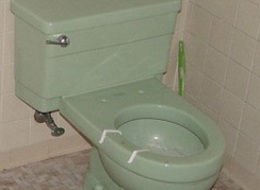
The only way of finding the limits of the possible is by going beyond them into the impossible."
-Arthur C. Clarke
-Arthur C. Clarke
People are constantly held back by images they hold of themselves as a true assessment of what comprises them, what makes them unique. Patanjali says that all feelings are only modifications of the mind, they do not represent us but rather reflect where we are at that moment in time.
For example, if I become jealous of someone, that is not to believe that I am a jealous person all the time, or that jealousy is an integral part of my composition but rather an ephemeral fluctuation of the mind. Written out this all seems fairly straightforward, self-intuitive even, yet I find that people (including myself) can experience these emotions and begin to associate with them, allow the emotions to define them and, eventually, allow them to override a perfectly formed template of self that was originally devoid of them.
Such was the case when I first started yoga. In my youth I enjoyed the sport of gymnastics, and during that time I found my flexibility to be above par, allowing me to excel for a short period of time. So naturally when I began my foray into yoga I expected this same flexibility to carry over, the ease of transitioning from one asana into the next would not be unlike performing a complicated floor or balance beam routine. And I was pleased to find this to be so - until I reached arm balances. Even with all my natural flexibility and muscles long-ingrained to contort into a multitude of poses, they baffled me, and in particular sirshasana (shoulder stand).
For a while I berated myself, scoffing at my initial beliefs that this impossible posture could be easily conquered simply because of my athletic past. What folly to think that I could have easily thrown myself up into a difficult inversion on my first try. In retrospect I see how defining myself solely on previous capabilities allowed me to use them to define the current version of self.
I find myself doing this often. But what I came to realize recently is that we are not just a static version of ourselves, but rather are constantly changing, improving and devolving. Yet this should never be looked at negatively, but rather as a tool, a mirror that can be held up to oneself to assess what changes have been made and how they might affect someone in the long run. If one chooses to define themselves in such a way as to limit their own actions, they are the ones placing the bars in a cage around themselves so as to never fly again.
What I cannot do now is not an obstacle forever, but instead something to work towards; inevitably, along that path of self-improvement there is not only one lesson to be learned. By stretching just a little more into the dreaded wheel pose, nervously stepping foot into your boss's office to ask for a raise, staring at a blank page of what could be your great novel: realizing that defeat is possible but not the only outcome of trying something new is the first step towards greatness.

















